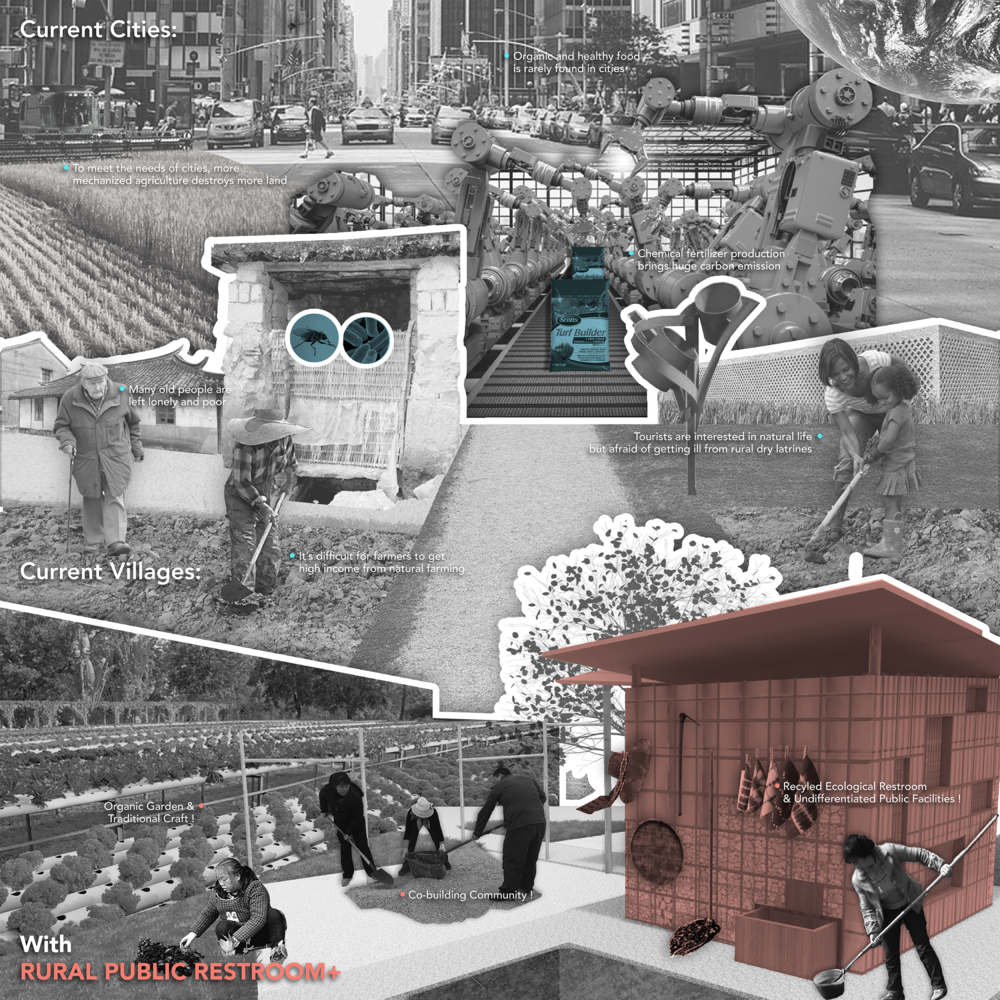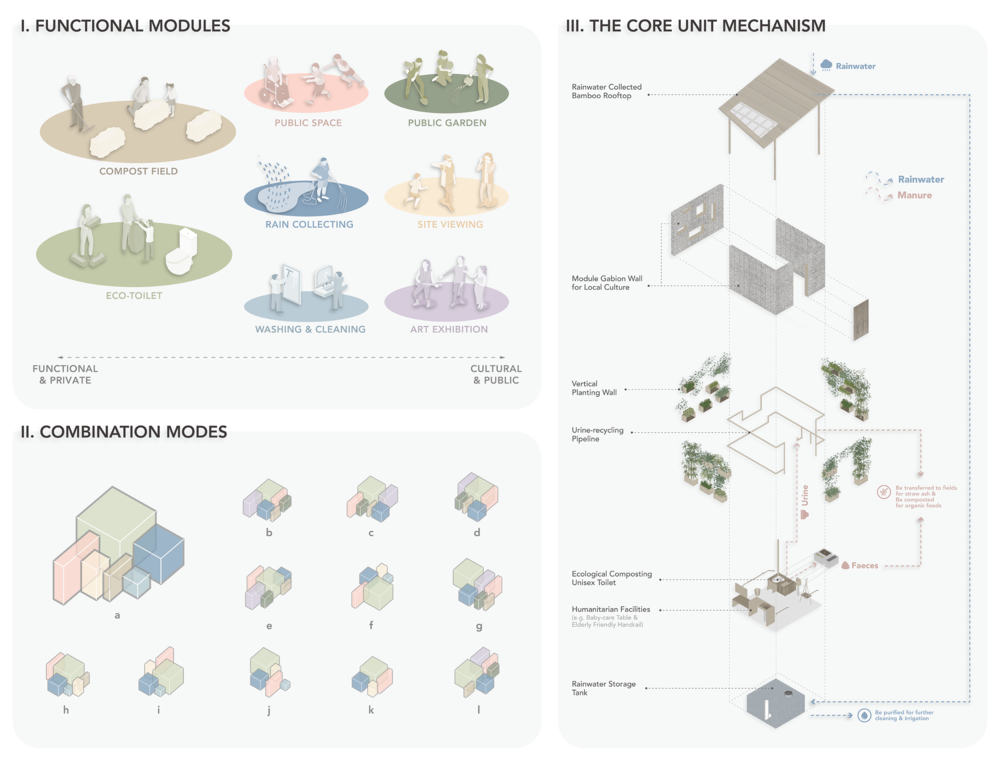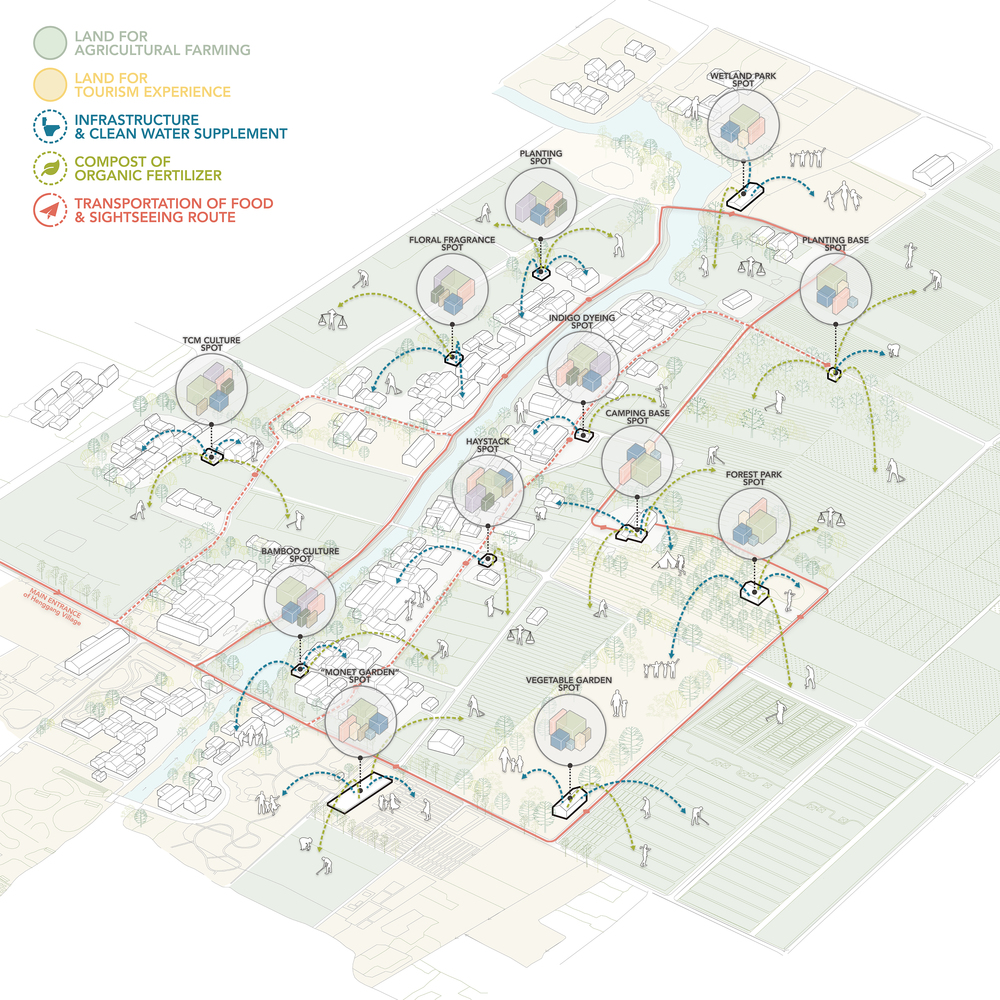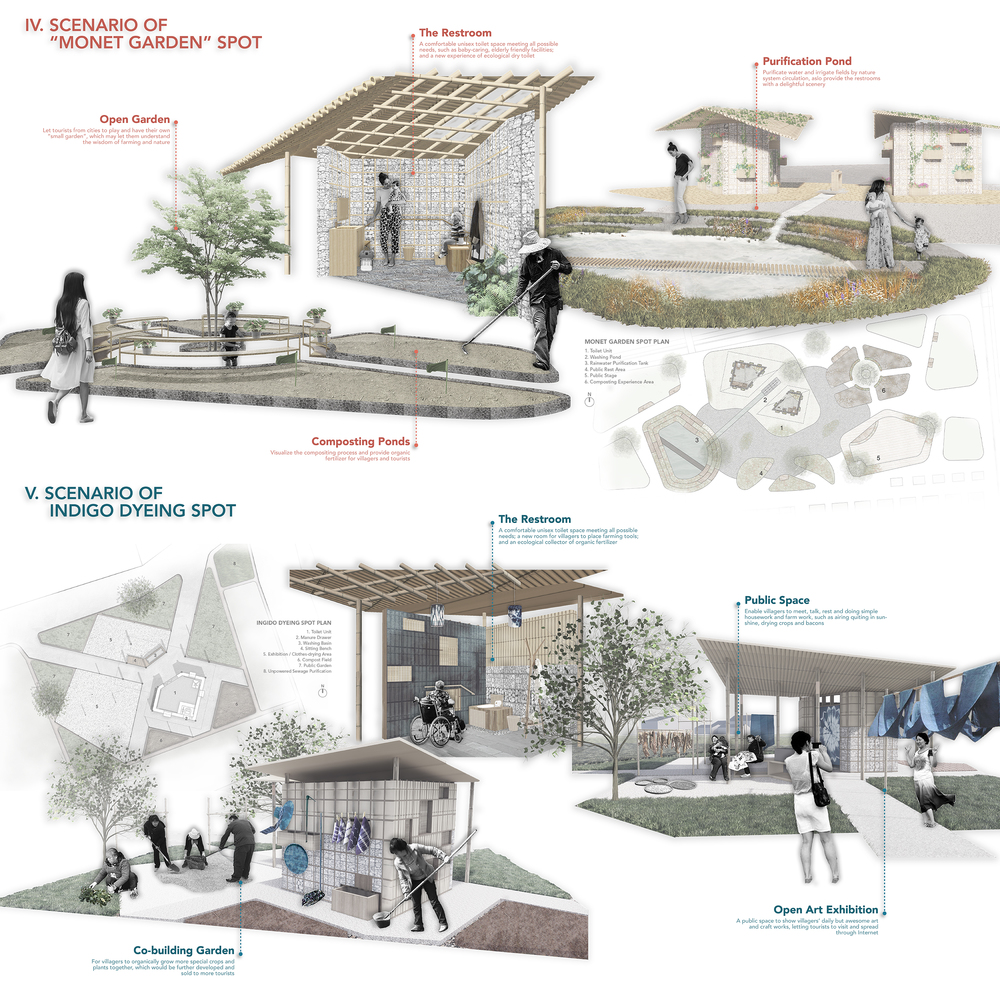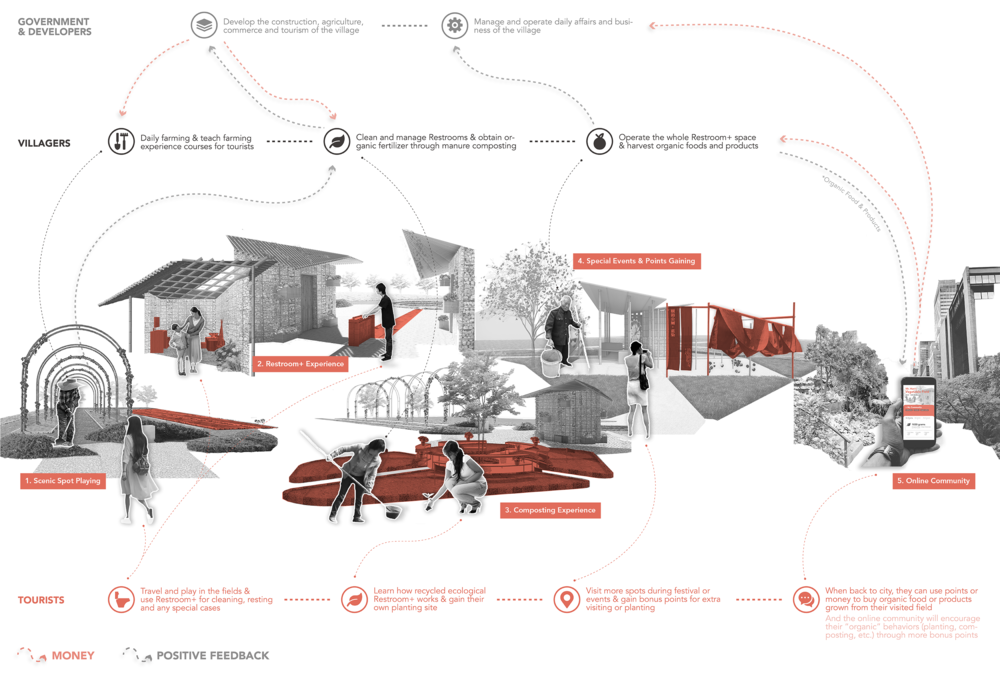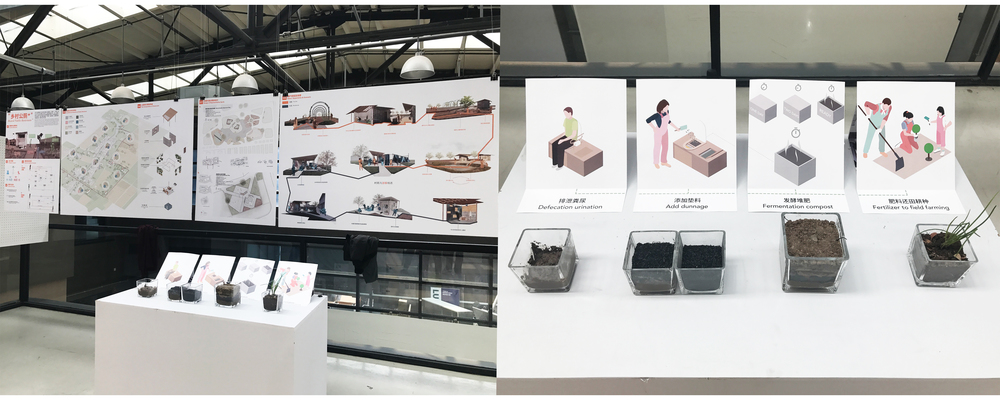Honorable Mention
Rural Public Restroom+
A new sustainable path to rural development through the renovation of Chinese farming wisdom
Solution
Rural Public Restroom+ provides a new way to build recyclable ecological public toilets adapting to local conditions, which will transform the villagers from owners of private and dirty dry latrines to the co-operators of public spaces and resources. Through this project, villagers and tourists will encounter, which not only improves people’s quality of life, but also creates a cooperation platform for villagers, developers, government and other more participants.
Project Description
Rural Public Restroom+ is a bold proposal for the upgrading of rural public toilets based on the current rural China. By providing a new way to build recyclable ecological public toilets adapting to local conditions, the new places of restrooms will transform the villagers from owners of private, dirty and disordered dry latrines to the co-operators of public spaces and resources. Through this project, villagers and foreign tourists will encounter, which not only improves villagers’ and tourists’ quality of life and experience, but also creates a cooperation platform for villagers, developers, government and other more participants. Rural public restroom+ aims to become a new path to rural economic and cultural development through reservation and redevelopment of Chinese farming wisdom, and to promote the sustainable production and consumption of organic food in both rural and urban areas.
Overview of the Solution
The countryside in current China is in a conflict situation. Urbanization has led to negative influences on rural economy and even natural environment, while government has just started revitalizing the rural areas. In this regard, rural public toilets are the reflection of these opportunities and problems in the rural-urban interaction. On one hand, traditional dry latrines and dilapidated public toilets have brought a very negative impact on rural health and environment. On the other, traditional dry latrines are the neglected symbol of Chinese farming wisdom, representing a sustainable production mode and lifestyle.
In this context, Rural Public Restroom+ is a design for resolving contradictions as well as connecting rural villagers, tourists, and more participants.
The project began with a field visit to Henggang Village, which is a small village developing towards international art village in Zhejiang Province. After a longtime field research and communication with villagers, we found that while tourism projects were vigorously developed, numerous dry latrines were ignored by developers, and the gap between villagers, tourists and developers was deepened. Thus, our project was aimed to preserve and activate rural farming life and wisdom through a recyclable ecological toilet. After further user research, and in-depth study of relevant cases, we further developed a systematic strategy which helps toilets become public “restroom” spaces, and provides a service system connecting urban and rural areas.
Rural Public Restroom+ can not only adapt to the local conditions, save materials and energy, but also be public resources owned by more villagers. It helps villagers to change their identities and improve their awareness, and promotes the natural encounter of rural public life and tourist activities. This means that more effective and sustainable cooperation can be established between villagers, developers and the government, which can bring about the sustainable development of rural economy and culture.
The Restroom+ can also provide tourists with more friendly rural experience, so as to enhance their respect for organic fertilizer and natural pollution-free production. Through the continuation of user experience and services, tourists may form a rural based organic food community in the city. We believe this means not only sustainable rural economic growth, but also a renovation of cities by the countryside under a better rural-urban interaction.
PROJECT TEAM
Mingyu Zhuang
INSTITUTION
Tongji University, China
Category
Product/Service/System
FACULTY/COURSE ADVISOR
Francesca Valsecchi, Hao Yang
STAKEHOLDERS
L&A Design – Private company
